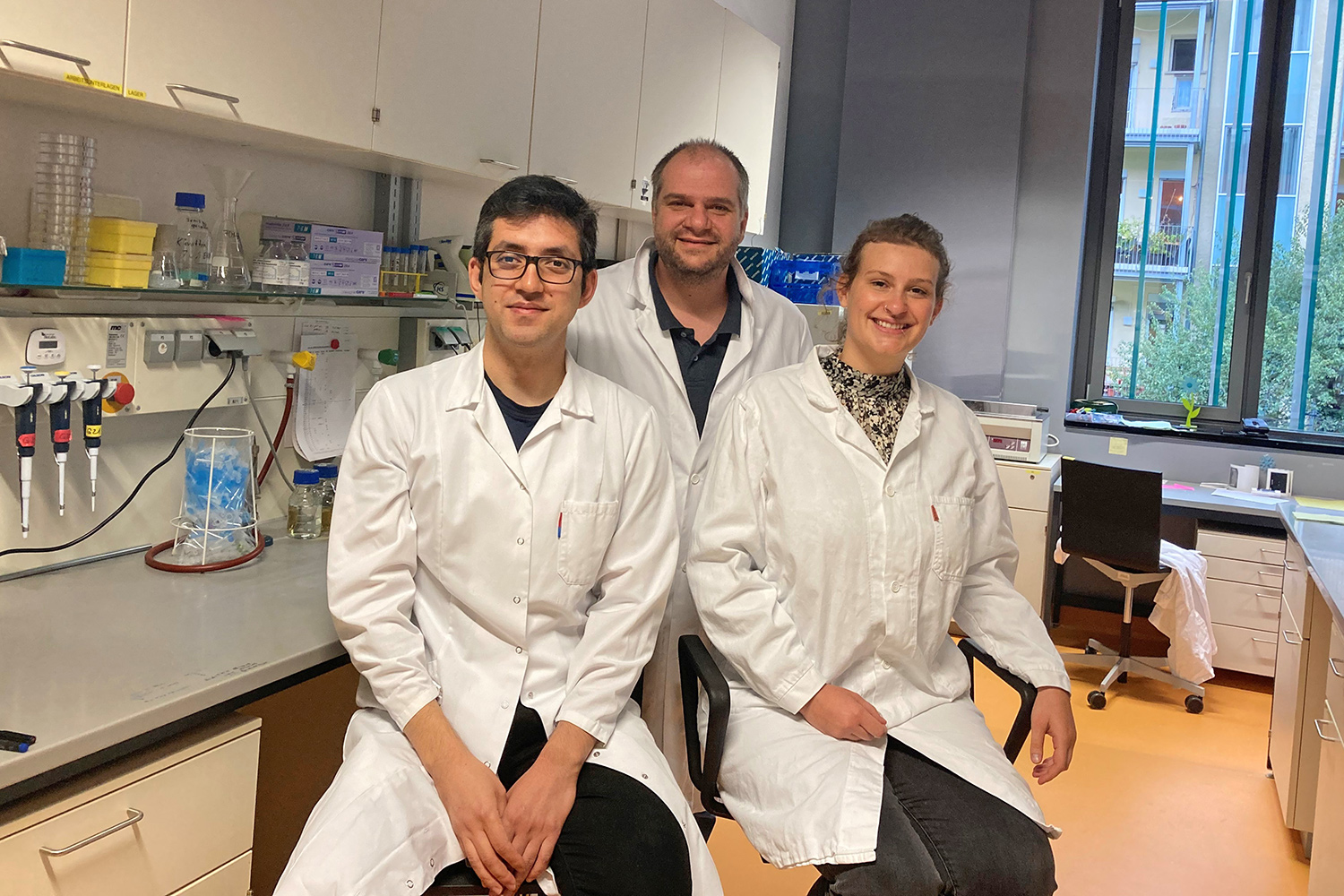Some fear the needle, others genetic manipulation, and in large parts of the world distribution problems are the primary reason why vaccination targets are not being reached. The most effective RNA vaccines against Covid-19 currently available will not be enough to permanently combat the pandemic. Against this background, molecular biologists at the University of Graz have developed a vaccine candidate that is inexpensive to produce, storable at room temperature and can be administered as a nasal spray with no need for trained personnel. The invention has already been registered for a patent and published in the journal Frontiers in Microbiology.
“Hitchhiking” on the bacterial membrane
As a carrier material for the vaccine, Stefan Schild from the Institute of Molecular Biosciences uses the constricted outer membranes of cholera and coli bacteria, which he has been researching for more than a decade. The scientist and his team “load” these bacteria with information about the spike protein characteristic for the Covid pathogen, giving the immune system the tools to recognise the virus as an enemy and fight it. The potential vaccine was as effective as the vaccines already approved in mice as model organisms. The University of Graz is now looking for industrial partners for clinical studies.
Trump card for the next pandemic
Even if this newly developed method can no longer break the current wave, Schild sees great potential for the new technology: “In Africa, only three percent of the population are immunised, and the vaccines currently available will certainly not be enough to bring the pandemic under control in the long term.” He sees the simple production and distribution method as a major plus for his candidate, which he developed in close collaboration with Tufts University in Massachusetts (USA). Easy administration as a nose spray is also likely to increase the effectiveness of the vaccine as the defence mechanisms in the mucous membranes are activated, which is not the case with intramuscular injections. In addition, the proven carrier material can be adapted for a whole range of other infectious diseases.
